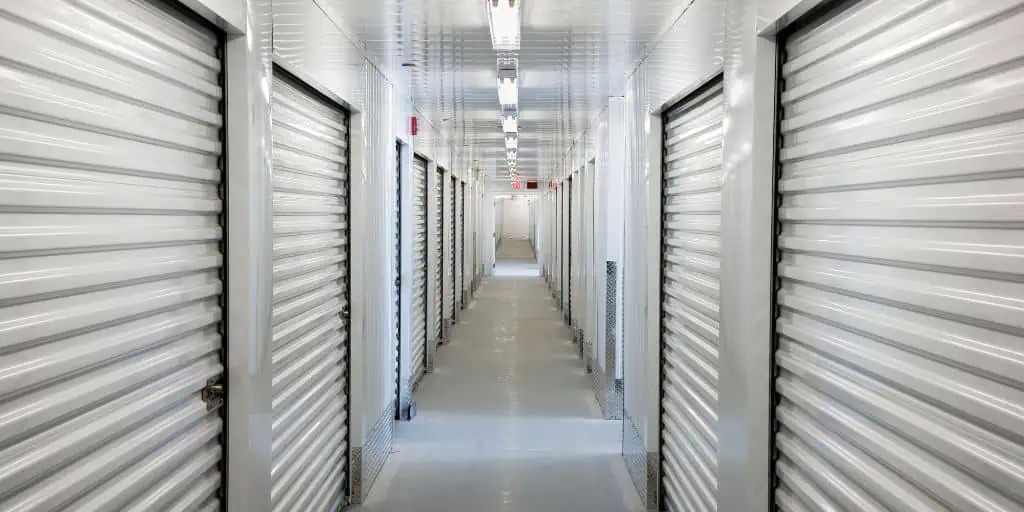If you’re considering investing in self-storage facilities, it’s crucial you understand the legal landscape surrounding them. From zoning regulations to tenant rights, each aspect can significantly impact your investment. You’ll need to navigate licensing requirements and ensure compliance with safety standards. As you explore these laws, you’ll discover complexities that could either enhance or hinder your venture. What specific regulations should you prioritize to safeguard your investment?
Understanding Zoning Regulations for Self-Storage Facilities
When you’re diving into the world of self-storage investments, understanding zoning regulations is crucial. Self storage zoning laws vary by location, affecting where you can establish your facility. You’ll need to research local ordinances to determine whether your chosen site is suitable for self-storage.
These regulations often dictate the size, height, and type of buildings allowed, so don’t skip this step. Additionally, familiarize yourself with self storage law regarding lien laws, as these can impact your operations if tenants default on payments.
Knowing how zoning and lien laws intertwine can save you from potential legal headaches. Ultimately, staying informed ensures your investment aligns with local requirements and maximizes your chances for success.
Licensing and Permitting Requirements
Before launching your self-storage facility, it’s essential to grasp the licensing and permitting requirements specific to your area. Each municipality has its own rules, so you’ll need to check local regulations.
Start by obtaining a business license, as it legitimizes your operation. Depending on your location, you might also need a special permit for a self-storage facility. Ensure compliance with health and safety codes, which may involve inspections. Additionally, zoning permits can dictate where you can build or operate, so clarify these requirements early on.
Don’t forget to stay updated on any changes in regulations that may affect your business. By understanding these requirements, you can avoid costly delays and ensure a smoother launch for your self-storage venture.
Tenant Rights and Responsibilities
Understanding tenant rights and responsibilities is crucial for anyone renting a self-storage unit, as these guidelines ensure a fair and respectful relationship between you and the facility operator.
You have the right to access your belongings during operating hours and expect a clean, secure environment. It’s your responsibility to pay rent on time and adhere to the facility’s rules. Be sure to read your rental agreement carefully, as it outlines your obligations and rights regarding late fees, access, and notification requirements. If you face any issues, communicate promptly with the facility management.
Maintaining clear communication helps resolve disputes and fosters a positive experience. Ultimately, knowing your rights and responsibilities protects both you and the facility operator.
Security and Safety Regulations
As you navigate your rights and responsibilities as a tenant, it’s equally important to consider the security and safety regulations that protect your belongings in a self-storage facility.
Ensure the facility has adequate security measures in place, such as surveillance cameras, gated access, and on-site personnel. Familiarize yourself with the facility’s emergency protocols, including fire safety measures and evacuation routes.
It’s also wise to check if the facility has a pest control plan to prevent damage to your items. You should also remember to lock your unit securely and consider using a high-quality lock.
Insurance Requirements for Self-Storage Operators
While navigating the world of self-storage, it’s crucial for operators to be aware of specific insurance requirements that protect both their business and their clients.
First and foremost, you’ll need general liability insurance to cover accidents or injuries that occur on your property. Additionally, consider property insurance to safeguard your facility against damage from fires, theft, or natural disasters. It’s also wise to look into business interruption insurance, which can help you recover lost income during unforeseen closures. Don’t forget about insurance for your tenants’ belongings; many operators offer or require tenants to have their own coverage.
Keeping abreast of local laws and industry standards ensures you’re adequately protected and compliant. This diligence can save you significant financial headaches down the road.
Lease Agreements and Terms
When you draft lease agreements for your self-storage units, it’s essential to clearly outline the terms to protect both your interests and those of your tenants.
Start by specifying the rental amount, payment due dates, and acceptable payment methods. Include the lease duration and any renewal options to avoid misunderstandings. Additionally, clarify the responsibilities of both parties regarding maintenance and access. It’s also crucial to include terms related to late fees, security deposits, and what happens if a tenant defaults. Make sure to detail the allowed uses of the storage unit, as well as any restrictions.
Finally, consider including a clause for termination conditions to provide a clear exit strategy for both you and the tenant.
Lien Laws and Enforcement Procedures
Understanding lien laws and enforcement procedures is crucial for self-storage investors, since they define your rights in the event of tenant default. When a tenant fails to pay rent, you can place a lien on their stored property, allowing you to recover unpaid dues.
Each state has specific requirements for notifying tenants and conducting auctions or sales of their belongings. It’s essential to follow these procedures carefully to avoid legal issues. Generally, you’ll need to send a notice of default and allow a specific grace period for payment.
Once you’ve met all legal obligations, you can auction the items to recoup losses. Familiarize yourself with your state’s lien laws to protect your investment effectively.
Environmental Compliance Considerations
As you delve into the world of self-storage investment, it’s vital to consider environmental compliance to protect both your assets and the community.
You’ll need to familiarize yourself with local, state, and federal regulations regarding waste management, hazardous materials, and site contamination. Ensuring that your facility complies with the Environmental Protection Agency (EPA) guidelines can prevent costly fines and liability issues. Evaluate the environmental history of potential sites before purchasing, as contaminated properties can require expensive remediation.
Additionally, implementing sustainable practices, like proper waste disposal and energy-efficient operations, not only ensures compliance but can also attract eco-conscious customers.
Tax Implications for Self-Storage Investments
Navigating environmental compliance is just one aspect of managing a self-storage investment; tax implications play a significant role in your financial strategy.
You’ll need to understand how income generated from your self-storage facility is taxed. Rental income is typically subject to ordinary income tax rates, while expenses like maintenance, property management, and depreciation can be deducted, lowering your taxable income. You might also benefit from tax incentives, such as the 1031 exchange, which allows you to defer taxes when reinvesting in similar properties. Additionally, keep track of local property taxes, as they can vary widely.
Consulting with a tax professional can help you maximize deductions and ensure compliance, ultimately boosting your investment’s profitability.
State-Specific Variations in Self-Storage Laws
Although self storage law might seem straightforward, they can vary significantly from state to state, impacting your investment strategy. Each state has its own regulations regarding self storage lien laws, tenant rights, and eviction processes, which you need to understand.
For example, some states require a lengthy notice period before auctioning off a tenant’s belongings, while others allow quicker actions. Additionally, certain states may impose stricter rules on advertising for auctions or handling abandoned items. It’s crucial to familiarize yourself with local laws and stay updated on any changes. Ignoring these variations could lead to costly legal issues and affect your overall profitability.
Always consult a legal expert in your state to ensure compliance and protect your investment.


